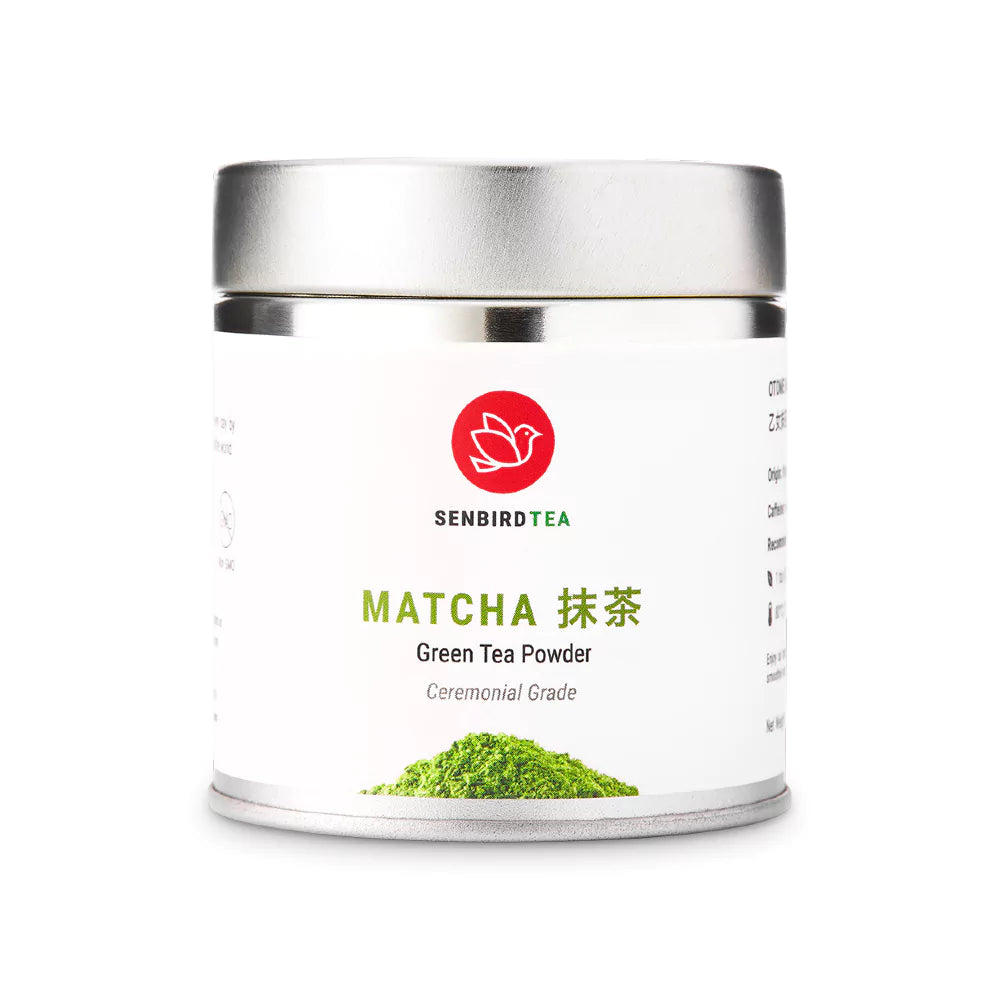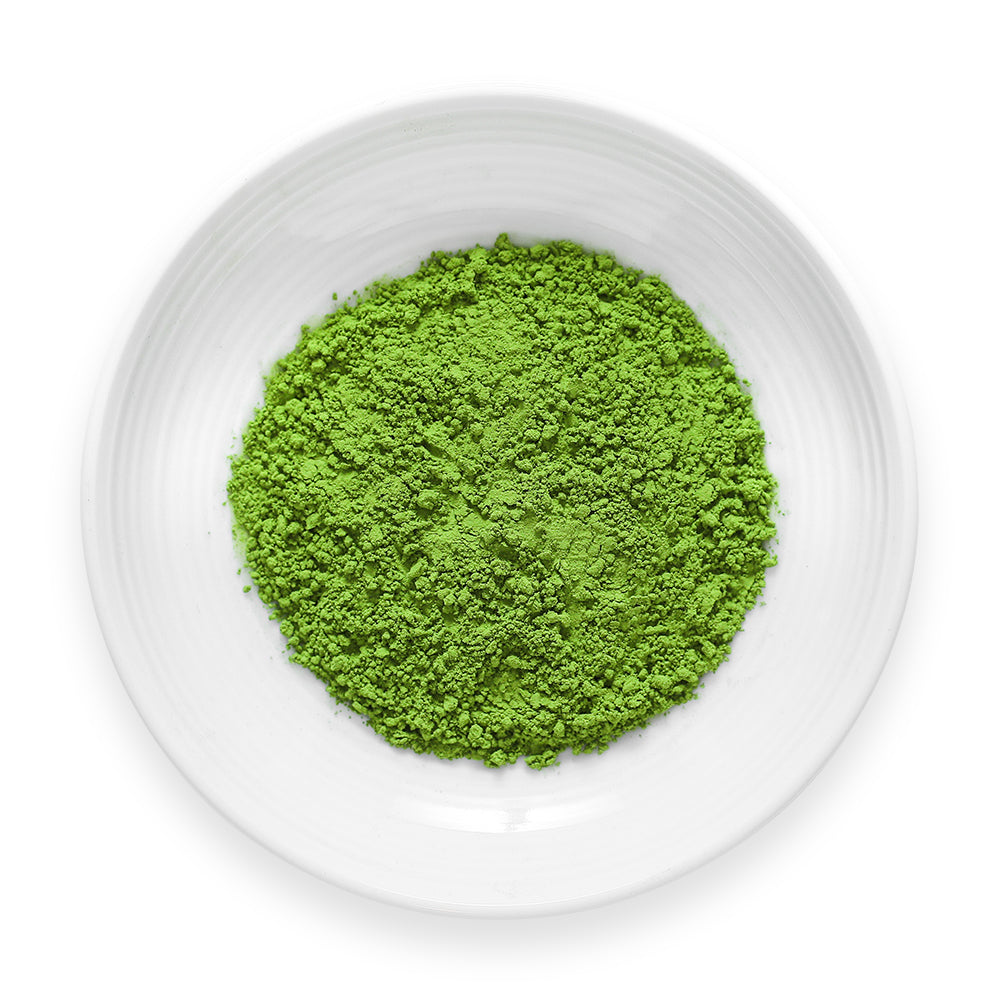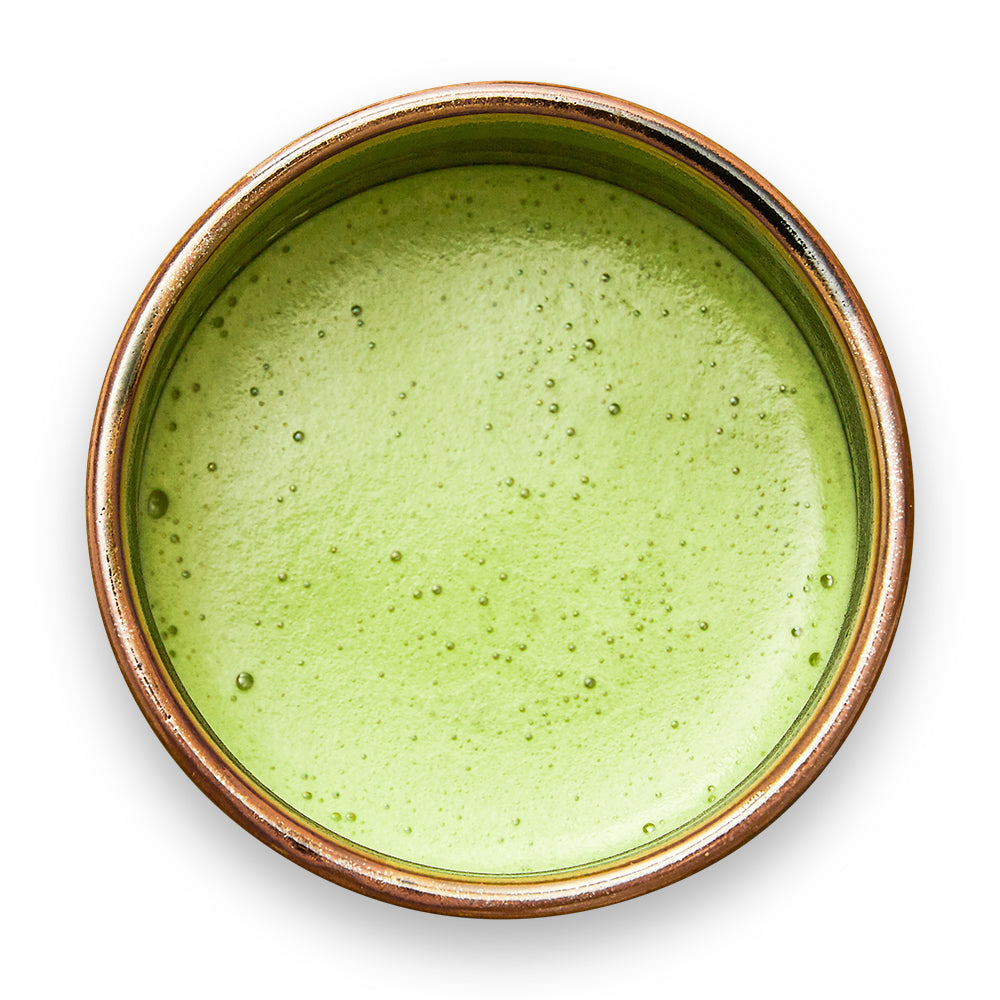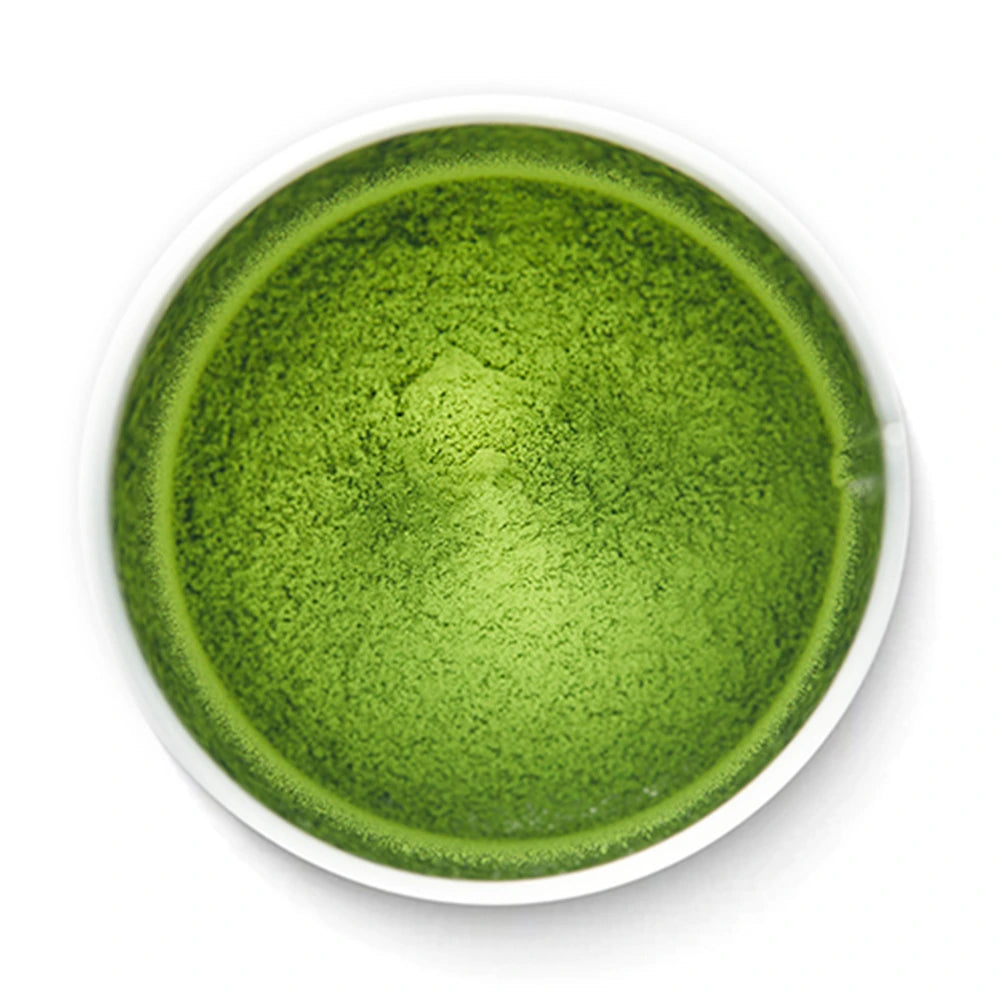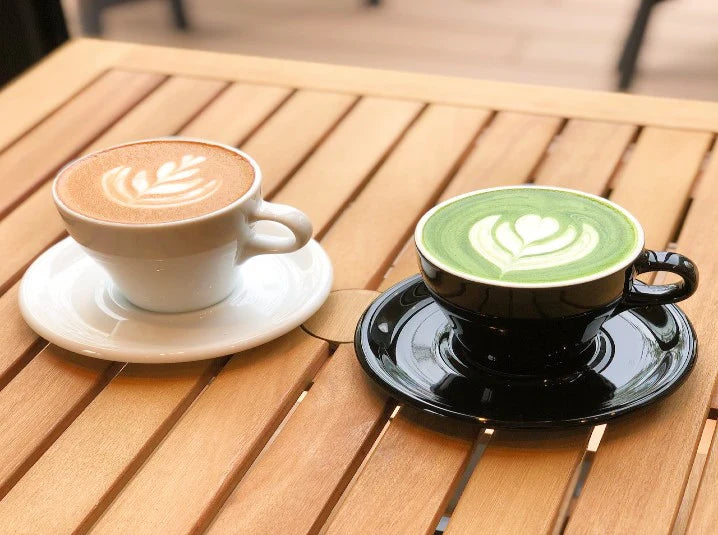


Matcha and coffee are the two most popular caffeinated morning beverages worldwide, but they deliver energy, health benefits, and flavor in fundamentally different ways. Matcha provides a smoother, more sustained caffeine boost through the synergistic interaction of caffeine and L-theanine, while coffee delivers a faster but shorter-lasting stimulant effect. When comparing matcha vs coffee across five key categories — caffeine quality, oral health impact, antioxidant content, metabolic support, and preparation versatility — matcha offers measurable advantages that make it the superior daily morning drink for health-conscious consumers. Senbird Tea offers premium Japanese matcha that provides all of these benefits in a single, vibrant green cup.

Both matcha and coffee contain caffeine, but the way each beverage delivers that caffeine to your body differs significantly. A standard serving of matcha (2g of powder) contains approximately 60–70mg of caffeine, while an 8-ounce cup of brewed coffee contains 80–100mg. However, matcha's caffeine is paired with high concentrations of L-theanine, an amino acid that modulates the stimulatory effects of caffeine by promoting alpha brain wave activity associated with calm alertness. Research published in Nutritional Neuroscience demonstrated that the caffeine-L-theanine combination improved attention, task switching accuracy, and alertness more effectively than caffeine alone.
In practical terms, this means matcha provides energy that builds gradually over 30–45 minutes and sustains for 4–6 hours without the spike-and-crash pattern that many coffee drinkers experience. Coffee's caffeine is absorbed rapidly (peaking in blood plasma within 30–60 minutes) and then metabolized quickly, often leading to an energy crash 2–3 hours later that prompts a second or third cup. Senbird Tea's shade-grown matcha contains particularly high levels of L-theanine because the extended shading period (20–30 days before harvest) prevents L-theanine from converting to catechins, resulting in a matcha that delivers exceptionally smooth, sustained energy.
Coffee is one of the primary dietary causes of tooth staining because its dark-colored tannins and chromogens bind to tooth enamel and accumulate over time. Coffee is also acidic (pH 4.85–5.10), which can erode enamel and contribute to tooth sensitivity with habitual consumption. Matcha, by contrast, has a near-neutral pH and contains natural catechins — particularly EGCG — that research in the Journal of Periodontology has shown to inhibit the growth of Porphyromonas gingivalis and other bacteria associated with periodontal disease and tooth decay.

A study published in the Annals of Stomatology found that green tea catechins reduce plaque formation and lower the concentration of acids in saliva that cause enamel erosion. While matcha can leave a light green tint on teeth if consumed in very large quantities, this surface staining is significantly less persistent than coffee staining and is easily removed with regular brushing. For people who value both their morning energy ritual and their dental health, switching from coffee to Senbird Tea's matcha eliminates a major source of cosmetic and structural tooth damage.
Matcha contains dramatically more antioxidants than coffee by virtually every measure. A study published in the Journal of Chromatography found that matcha contains 137 times more EGCG (epigallocatechin gallate) than standard brewed green tea, making it one of the most antioxidant-dense foods available. The ORAC (Oxygen Radical Absorbance Capacity) value of matcha is approximately 1,384 units per gram, compared to roughly 240 units per gram for brewed coffee. This means a single serving of matcha delivers nearly six times the antioxidant capacity of an equivalent serving of coffee.
The reason for this dramatic difference is that matcha drinkers consume the entire tea leaf in powdered form, while coffee drinkers consume only the water-soluble compounds extracted from coffee beans during brewing (the grounds are discarded). This whole-leaf consumption means matcha delivers the complete spectrum of the tea plant's protective compounds, including catechins, polyphenols, chlorophyll, and vitamins A, C, and E. These antioxidants work synergistically to neutralize free radicals, reduce oxidative stress, and support cellular health. Senbird Tea's stone-ground matcha preserves the full antioxidant potential of the tea leaves because the slow grinding process avoids the heat degradation that faster mechanical processing can cause.
Matcha's high chlorophyll content — a direct result of the 20–30 day shading process used in matcha production — gives it natural detoxification properties that coffee does not possess. Chlorophyll has been shown in research published in the Journal of Environmental Science and Health to bind to heavy metals and certain environmental toxins in the digestive tract, helping to reduce their absorption into the bloodstream. The deep green color of Senbird Tea's matcha is a visual indicator of its exceptionally high chlorophyll concentration.

For weight management, matcha has a measurable advantage over coffee. A study in the American Journal of Clinical Nutrition found that consuming green tea catechins (particularly EGCG) increased thermogenesis (fat-burning energy expenditure) from the normal 8–10% to 35–43% of daily energy expenditure. While coffee's caffeine also has a modest thermogenic effect, matcha provides this metabolic boost alongside L-theanine, which helps reduce the cortisol spikes that caffeine alone can trigger. Elevated cortisol promotes belly fat storage, so matcha's ability to deliver metabolic stimulation without cortisol elevation makes it the more effective choice for people pursuing weight management goals alongside their morning energy needs.
Preparing a cup of matcha requires only matcha powder, hot water, and 30 seconds of whisking — no expensive equipment, paper filters, or electricity needed. While coffee requires a dedicated brewing device (drip machine, French press, espresso machine, pour-over setup), matcha can be prepared with just a bowl and a whisk, or even shaken in a sealed bottle for a quick on-the-go option. This simplicity makes matcha the more portable and accessible morning drink, especially when traveling or working in spaces without coffee-making equipment.
Matcha is also significantly more versatile in the kitchen than coffee. Beyond drinking it straight, Senbird Tea's matcha can be whisked into lattes with any type of milk, blended into smoothies, shaken into lemonade, folded into baked goods like cheesecake and banana bread, mixed into ice cream, and even incorporated into savory dishes like matcha salt and salad dressings. While coffee flavoring is largely limited to sweet applications (coffee cake, tiramisu, coffee ice cream), matcha's umami character allows it to cross seamlessly between sweet and savory preparations, making it the more versatile pantry staple for creative home cooks.
| Category | Matcha | Coffee |
|---|---|---|
| Caffeine per serving | 60–70mg (2g serving) | 80–100mg (8oz cup) |
| Energy duration | 4–6 hours, no crash | 2–3 hours, crash common |
| L-theanine content | High (25–60mg per serving) | None |
| ORAC antioxidant score | ~1,384 units/g | ~240 units/g |
| Tooth staining | Minimal, easily removed | Significant, persistent |
| pH level | Near neutral (~7) | Acidic (4.85–5.10) |
| Chlorophyll content | High (detoxification support) | None |
| Prep time | 30 seconds | 3–10 minutes (varies by method) |
Yes, mixing matcha and coffee — sometimes called a "dirty matcha" or "matcha espresso" — has become a popular café trend that combines the flavor profiles and caffeine benefits of both beverages. A typical dirty matcha uses a shot of espresso (about 63mg caffeine) added to a matcha latte (about 60–70mg caffeine), creating a drink with approximately 120–130mg of total caffeine. The L-theanine in the matcha can help moderate the intensity of the espresso caffeine, potentially reducing jitteriness. However, this combination may be too stimulating for caffeine-sensitive individuals, so starting with a half shot of espresso is recommended for those new to dirty matcha.
A standard serving of matcha (2 grams of powder whisked with water) contains approximately 60–70mg of caffeine, while an 8-ounce cup of brewed coffee contains 80–100mg and a shot of espresso contains about 63mg. So matcha does contain slightly less caffeine than a standard cup of coffee, but the difference is relatively modest. The more significant distinction is how the caffeine is experienced — matcha's L-theanine slows the absorption of caffeine and promotes alpha brain wave activity, producing a calm, sustained alertness rather than the rapid spike and subsequent crash that coffee's caffeine often causes. This means matcha effectively provides "more usable" energy per milligram of caffeine.
If you currently drink multiple cups of coffee daily (consuming 200–400mg of caffeine), switching abruptly to matcha (60–70mg per serving) may trigger mild caffeine withdrawal symptoms including headache, fatigue, irritability, and difficulty concentrating. These symptoms typically peak 1–2 days after reducing caffeine and resolve within 5–7 days. To minimize withdrawal effects, Senbird Tea recommends a gradual transition: replace one cup of coffee with matcha during the first week, then two cups the second week, continuing until the switch is complete. Alternatively, temporarily increase your matcha serving size to 3–4 grams of powder to more closely match your previous caffeine intake.
Matcha is generally considered a better choice than coffee for people who experience caffeine-related anxiety. Coffee's caffeine stimulates the central nervous system and can increase cortisol and adrenaline production, which may exacerbate anxiety symptoms in sensitive individuals. Matcha's L-theanine directly counteracts these effects by increasing GABA (gamma-aminobutyric acid) production in the brain, which promotes relaxation without sedation. A 2016 study in Pharmacological Research found that L-theanine reduced stress responses and anxiety in participants exposed to cognitively demanding tasks. For people who need morning energy but are prone to anxiety, matcha from Senbird Tea provides stimulation with a built-in calming mechanism.
Matcha has a distinctive flavor profile that is quite different from coffee. High-quality ceremonial matcha from Senbird Tea tastes naturally sweet and umami-rich with subtle vegetal, grassy notes and a smooth, creamy mouthfeel. It lacks the bitterness, acidity, and roasted flavor that characterize coffee. Lower-quality matcha can taste bitter and astringent, which is why using premium matcha is essential for an enjoyable experience, especially for people transitioning from coffee. Many former coffee drinkers find that matcha lattes (matcha whisked with steamed milk and optional sweetener) provide the most approachable entry point because the milk and sweetness create a familiar latte experience while introducing the unique umami character of matcha.
抹茶乙女
Our best-selling ceremonial Okumidori matcha with a silky body, mellow cocoa notes, and refined umami, perfect for traditional preparation or refined lattes.
